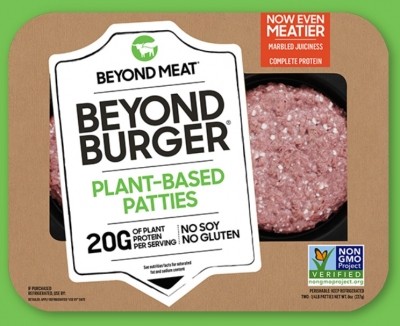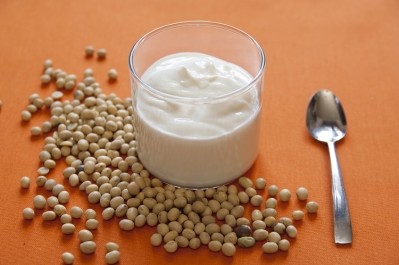When the 2% is a threat: What are the next big opportunities for plant-based foods?

How big is the plant-based opportunity?
Morten Toft Bech, founder of The Meatless Farm Company, pointed out that he recently attended a conference where he was surrounded by meat producers and they were making it quite clear they were threatened by what Meatless Farm and other plant-based meat companies are doing.
“Even though they have 98% of the market they were acting like they were threatened by me.”
He added that this is a good sign for the huge potential for this category.
Jean-Philippe Azouley, head of the Pea and New Proteins Business Line at Roquette, in France, added that plant-based products aren’t just being created for vegans or vegetarians but for everyone conscious about increasing the variety of veg they eat.
“It’s about more than just meat or non-meat. It’s about a whole way of life.
“We are encouraging people to eat a variety of things in order to have a balanced diet. We are providing choice and the ability to get more plants into their diets.”
Ela Madej, co-founder of Fifty Years USA, added that she can see the plant-based movement benefiting from the new-found interest in fibre’s many health benefits.
“I think we could see fibre becoming the next protein. People are obsessed with adding protein to everything at the moment, but people are becoming more concerned with how they are digesting their food.”
She added that this is another way that people are starting to see plant-based as being ‘healthier’ than meat - a question always on meat-eaters lips.
“There’s a lot of talk about how healthy meat-free alternatives are and if the fact that they are processed makes them less healthy.”
She said the assumption is that meat isn’t processed but argued that if they look at the process involved in mass produced meat, especially with the level of antibiotic use, they would realise that’s not a naturally produced product.

How do we create the right flavour?
Discussing the basics of changing the flavour profile of a plant-based alternative, Anne-Marie Butler, applications manager at The Edlong Corporation, in Ireland, explained that they always start by stripping back the flavour of the protein source to a neutral profile, before slowly build the mouth feel and the flavours.
But, as taste is such a subjective issue, it’s impossible to get the right flavour for every palette, especially in the world of plant-based alternatives where everyone is choosing to buy these products for different reasons.
Those looking to find a replacement that closely mimics meat will obviously want a flavour as similar to meat as possible, while those wanting to try new flavours or those who don’t like the taste of meat will want something totally different.
Butler explained: “There’s a set of consumers that want the authentic taste – the flavour of the product they are looking to mimic. Then you have those that are looking for products that taste like what’s inside them.
“So the flavour you create really depends on who you’re aiming the product towards.”
What the next big opportunity?
Azoulay suggested the next big category to be disrupted by the plant-based movement, is fish.
Madej agreed, adding that she’s never had a vegan salmon or white fish that she was impressed by so she believed there’s a lot of opportunity in this category.
She also said she could see tempeh ‘going into the mainstream’ thanks to the USDA Food and Nutrition Service (FNS) for recently crediting tempeh in the Child Nutrition Programs as being an acceptable meat replacement – previously only tofu and soy yogurt were accepted.
The new decision means that one ounce of tempeh is considered equal to one ounce of centre-of-the-plate protein. This designation effectively means that it's much more economically feasible for schools and other programs to serve tempeh.
“Just this month, tempeh got approved as a valid protein replacement for school lunches [in the US] which is a huge step,” said Madej
“As young consumers get used to these new flavours we will see more people going towards fermented plant-based choices.”

























